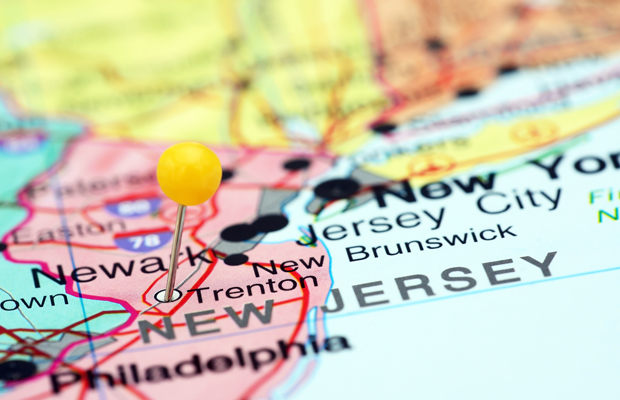 Three weeks ago, the Supreme Court of the United States found the Professional and Amateur Sports Protection Act (PASPA) unconstitutional. The repeal of PASPA, it was speculated, would prompt a flood of online gambling legislation. But, so far, the repeal of PASPA seems to have created more problems than it has solved.
Three weeks ago, the Supreme Court of the United States found the Professional and Amateur Sports Protection Act (PASPA) unconstitutional. The repeal of PASPA, it was speculated, would prompt a flood of online gambling legislation. But, so far, the repeal of PASPA seems to have created more problems than it has solved.
On May 14th, the repeal of PASPA was widely celebrated by proponents of regulated iGaming. It was generally considered that, now states had the option to regulate and tax sports betting, legislation to regulate online poker and online casinos would be piggybacked onto the back of sports betting bills.
However, although the concept was sound in principle, what has happened since is that more “interested parties” than ever before have emerged from the woodwork to claim their slice of the revenue pie. The consequence has been not only to delay sports betting legislation, but also to complicate proposals for regulated online poker and online casinos.
A Mess and a Half Developing in Connecticut
Connecticut was one of a number of states with a chance of regulating online poker and online casinos this year until [geolink href=”https://www.usafriendlypokersites.com/politics-delays-prospects-for-gambling-expansion-in-connecticut/”]politics got in the way[/geolink]. Now a new dispute has evolved between tribal gaming interests, the state lottery and Autotote Enterprises – a division of Sportech that has the exclusive rights to offer Off-Track Betting services in Connecticut.
All three parties are claiming an exclusive right to offer sports betting. At present, the state´s Attorney General – George Jepsen – is in favor of operating sports betting via the lottery and Off-Track Betting parlors, but this could jeopardize compacts with the Mohegan Tribe and Mashantucket Pequot Tribal Nation – who last year jointly contributed $270 million to the General State Fund.
Similar Problems Surfacing in Michigan
Over in Michigan, the “dispute du jour” concerns a clause in a joint sports betting/iGaming bill that would allow the state´s commercial casinos to continue offering sports betting and online gambling if ever a federal bill was passed limiting tribal gaming to within Indian reservations. The tribes do not like it, but the commercial casinos are insisting on it before supporting the bill.
With the stakes much higher now that sports betting is in the mix, Rep. Brandt Iden has his work cut out to resolve the issue before the end of the current legislative session in ten days. If he achieves it, all he will have to do then is convince his colleagues in Lansing that his joint sports betting/iGaming bill is economically viable and [geolink href=”https://www.usafriendlypokersites.com/iden-publishes-new-draft-michigan-igaming-bill/”]does not constitute an expansion of gambling[/geolink]. Easy.
Illinois Couldn´t Get Any Messier
Illinois has been considering five different bills relating to sports betting and/or online gambling since the start of the year. The one including integrity fees is supported by professional sports bodies, the one giving sports betting rights exclusively to casinos is opposed by racetracks (and vice versa), and the politically-powerful Video Gaming Association is fighting all of them.
Another spanner in the works is the distribution of income. Most of the bills support an expansion of gambling that includes a new commercial casino in Chicago. The Mayor of Chicago has expressed his disapproval of the proposals because all the revenues from this particular expansion of gambling would be shared between the casino and the state – with none left for the city itself.
Unnecessary Sports Betting Legislation will Delay Online Poker in New York
Back in 2013, New York passed a law allowing the state´s four commercial casinos to offer sports betting subject to a repeal of PASPA. Nonetheless, Senator John Bonacic now wants to introduce new legislation allowing Off-Track Betting parlors to partner with casinos in order to offer a sports betting service, and to take sports betting online.
The measures are being opposed by professional sports bodies and tribal casinos, and have not been that warmly embraced by the Assembly – who are using concerns about the societal impact of sports betting
to push proposed online poker legislation onto the back burner. New York´s legislative session also closes soon on June 20th.
If Anything, iGaming Legislation has gone Backwards
As it stands, the only two states to go live with sports betting in the near future will be Delaware and New Jersey – two states that have already got their iGaming houses in order. How long it might take any other states (with the exceptions of Nevada and Pennsylvania) to pass a comprehensive gambling package that includes iGaming could be anybody´s guess.
Maybe the solution to this problem is not to focus on regulating sports betting and piggyback online gambling onto the back of it, but – as Delaware and New Jersey have done – sort out iGaming as a priority and let the ever-growing band of “interested parties” sit and wait. It has not worked before; but now, with more at stake, it could encourage the interested parties to stop being so greedy and work together on compromise solutions.




